Eastman Kodak Co. Folmer-Schwing Div. (Rochester, NY)
Circuit Outfit No. 8 (8" Roll Film) - c. 1920
8" Circuit Outfit:
6x8": Cycle Graphic (left), Circuit Film Holder Attachment (right rear), Circuit
Tripod, and box containing the Circuit gears and the winding key
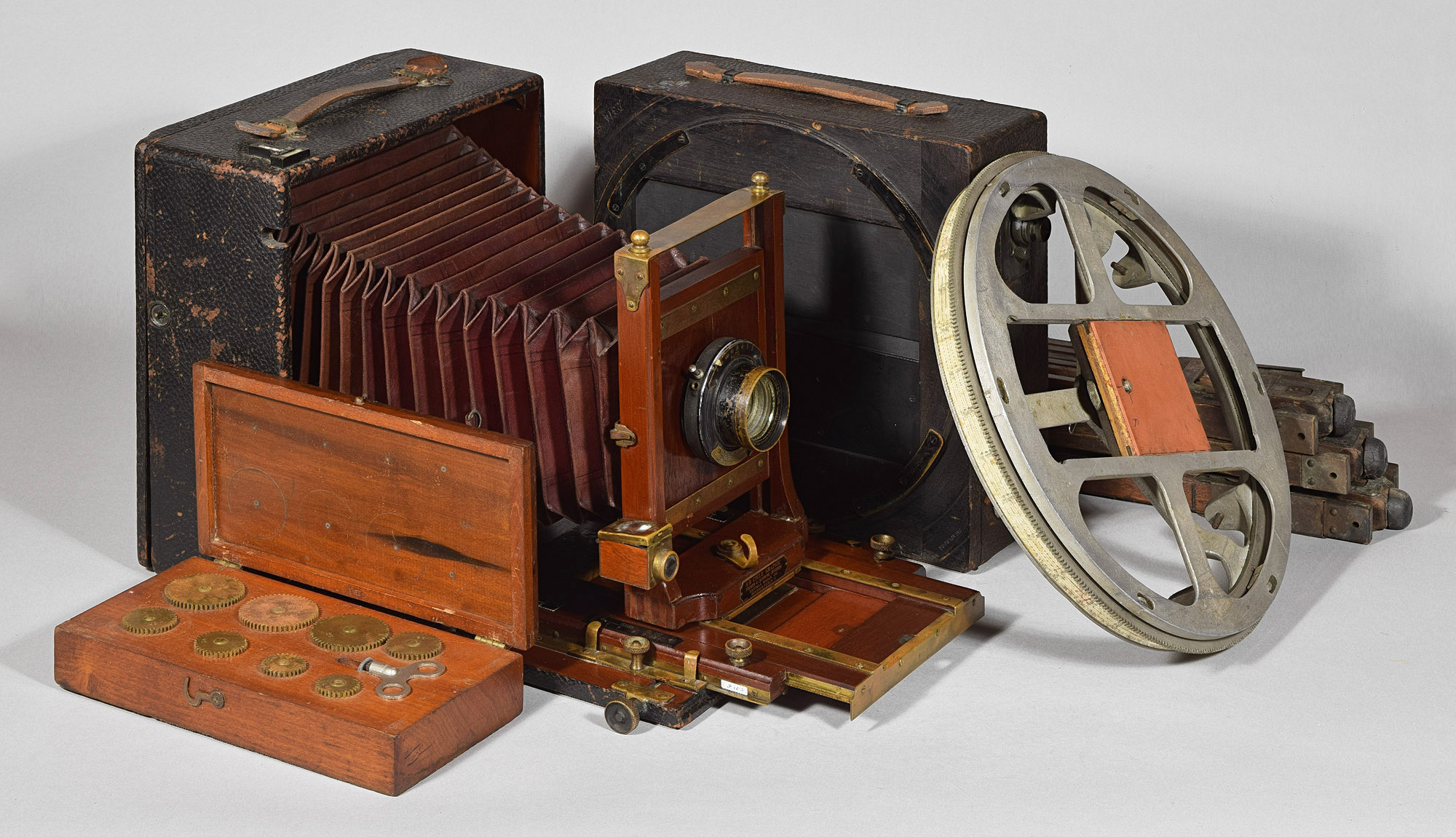
Camera with circuit film holder
installed
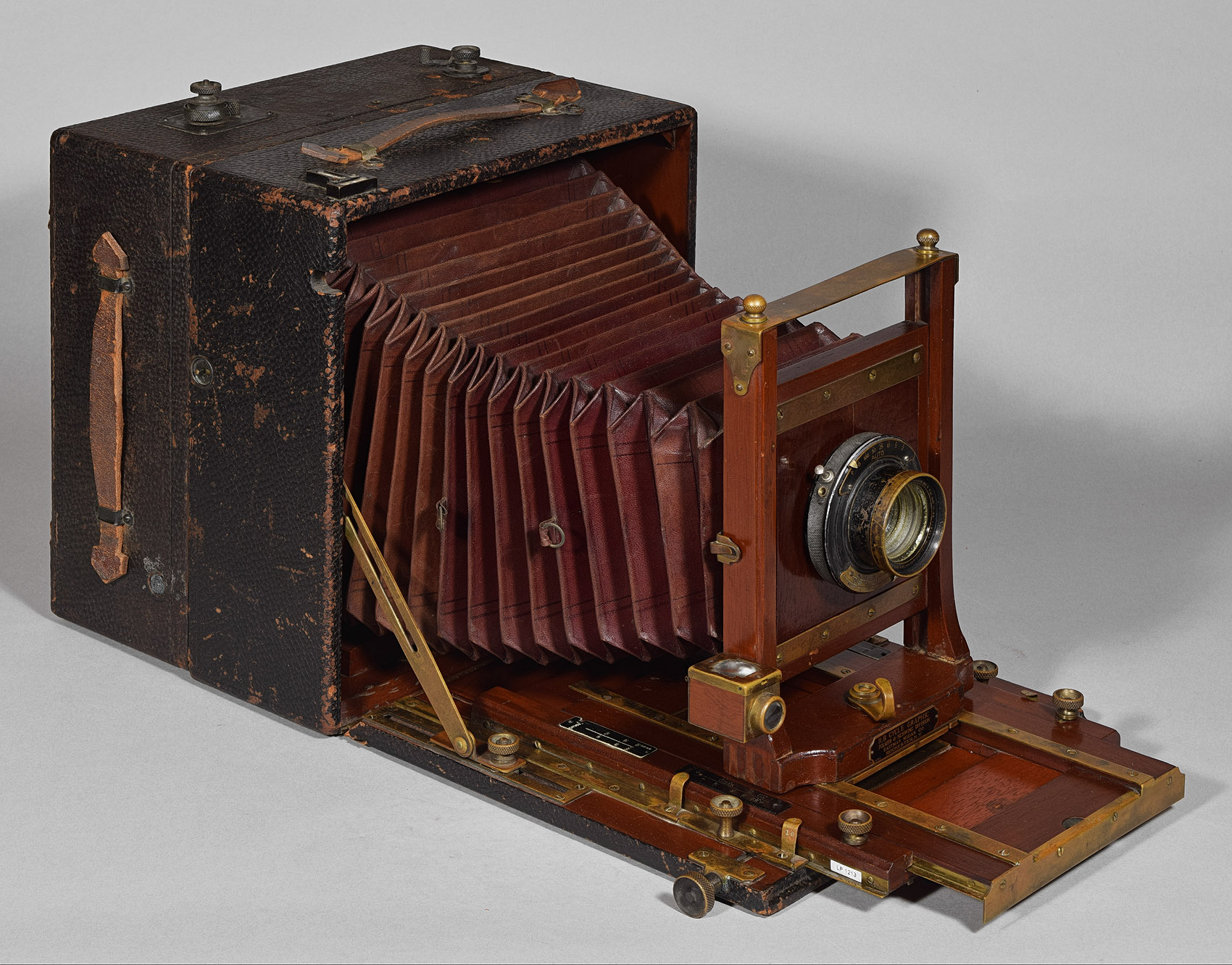
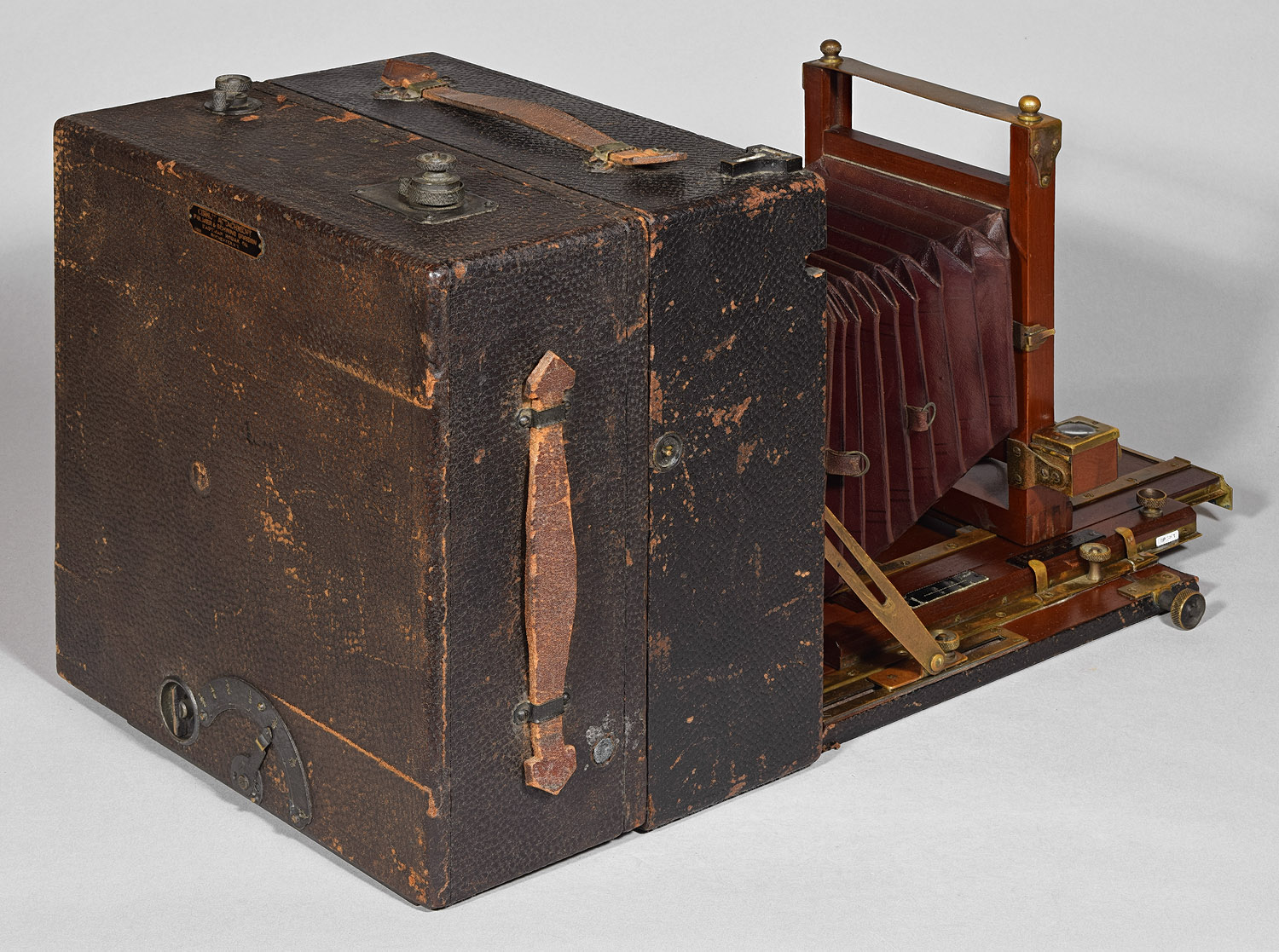
Camera only. serial no. or,
more likely, assembly no. 155 (underside of middle extension)
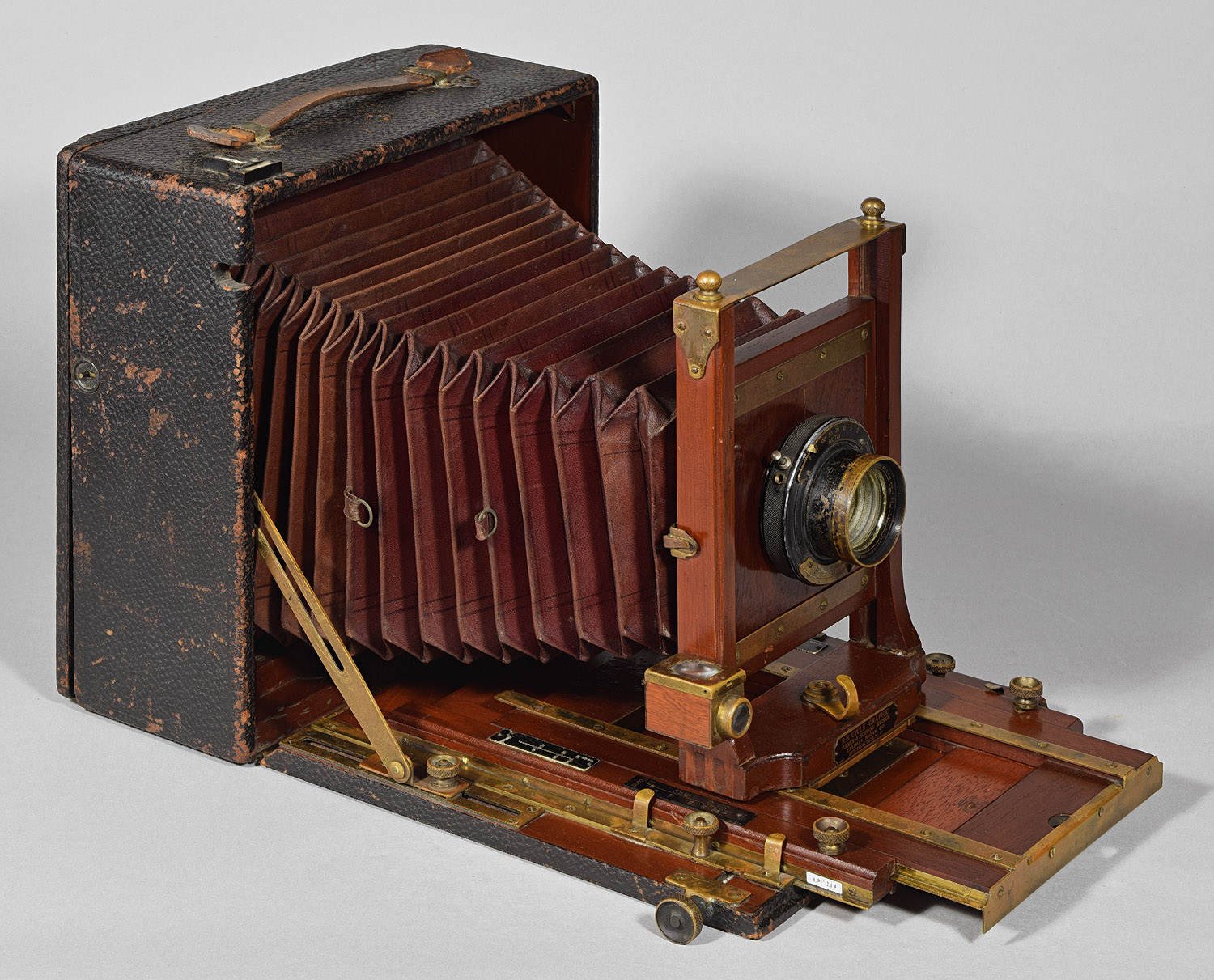
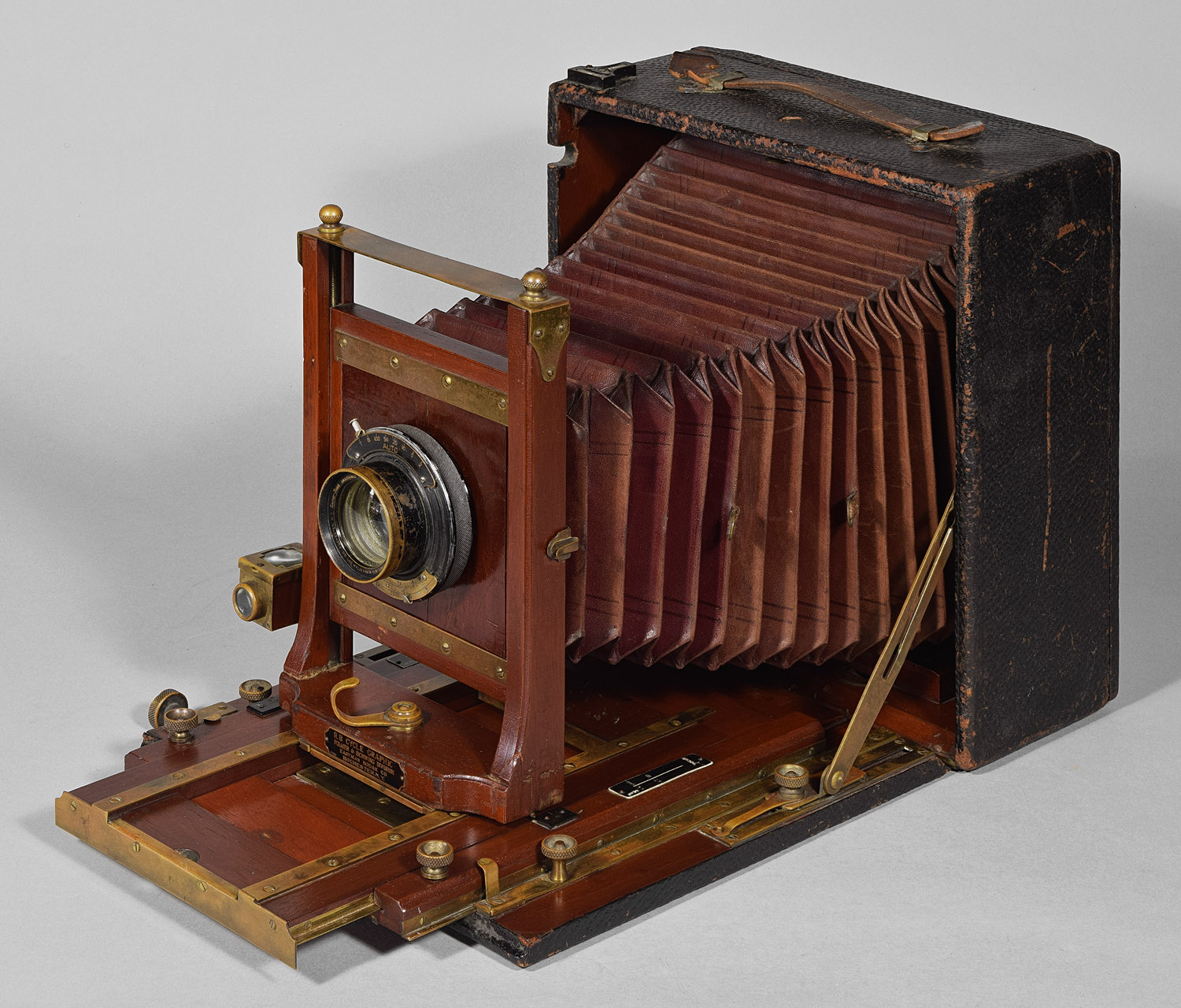
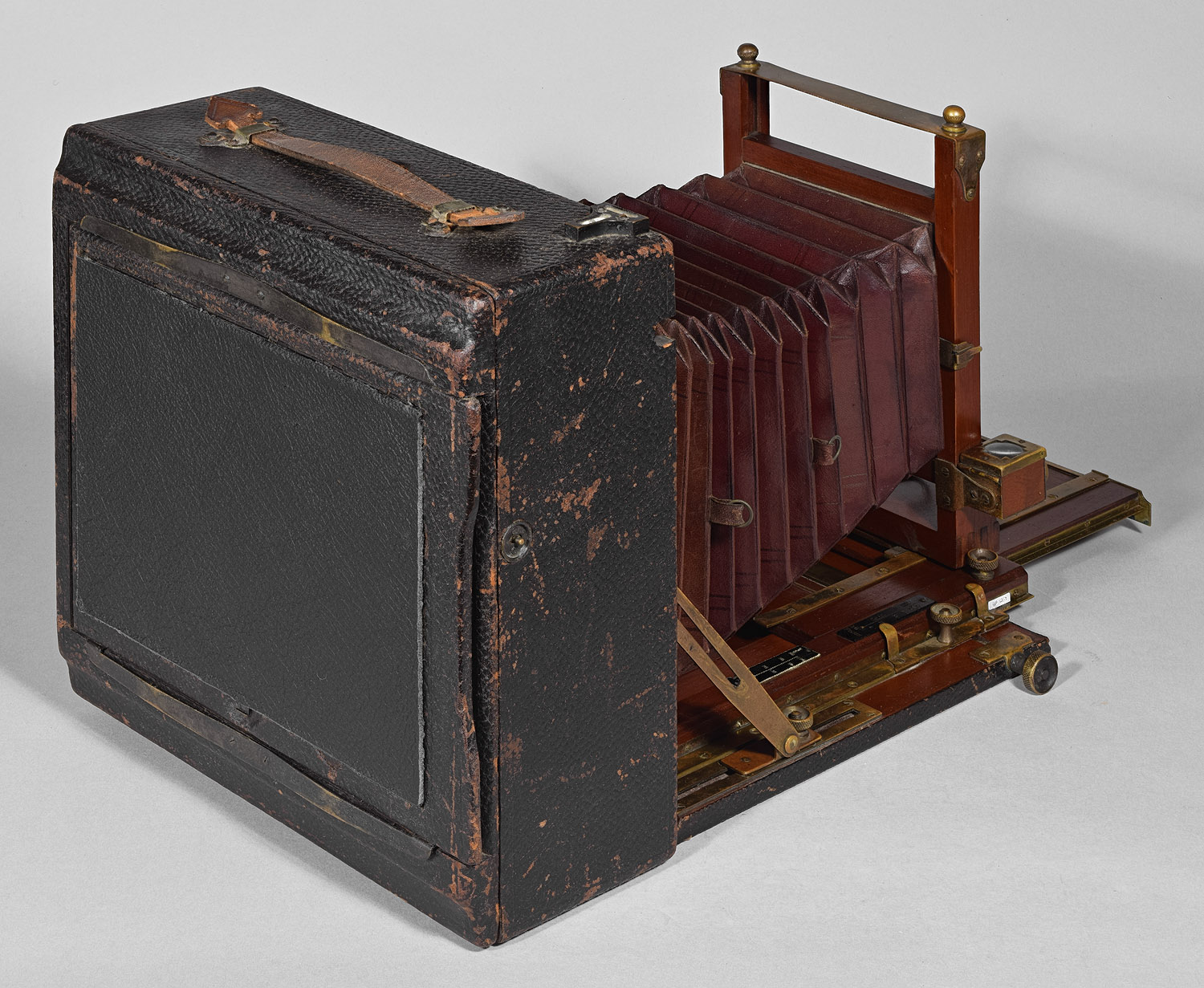
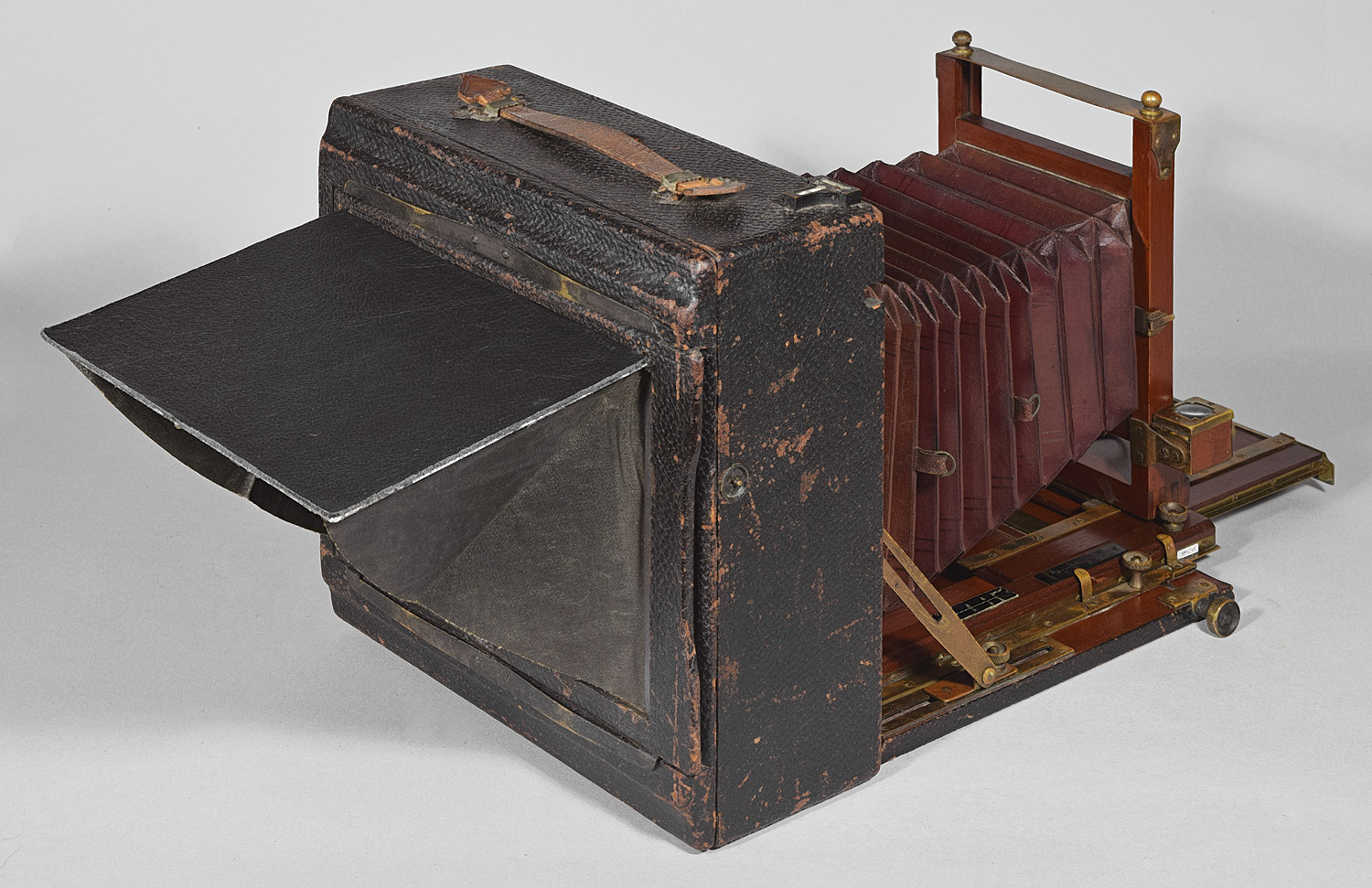
Label, lower part of the front (moveable) standard of the camera
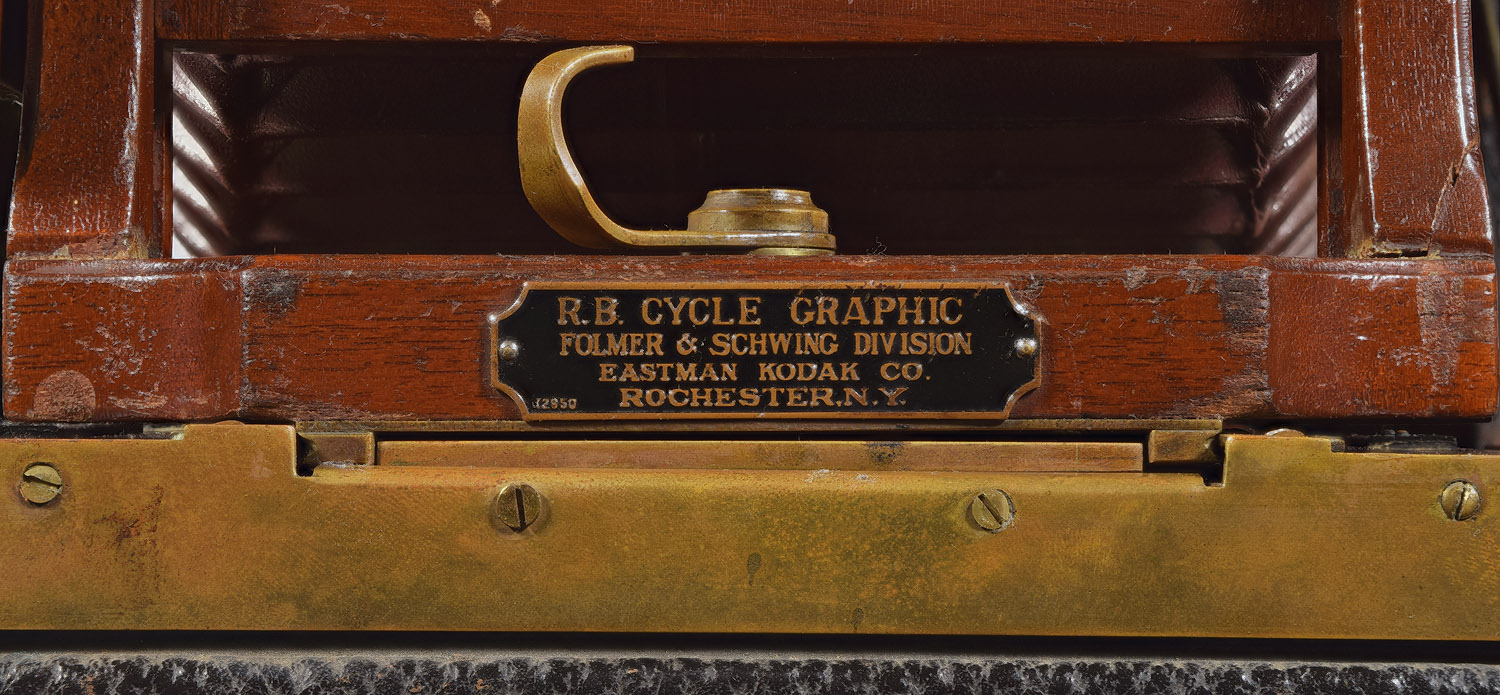
Perspective showing the
connection of the Circuit Attachment and the camera. To install,
the Circuit Attachment is pressed onto the camera with its top at a 45°
angle to the top of the camera, then rotated to 0° to lock it into
place.
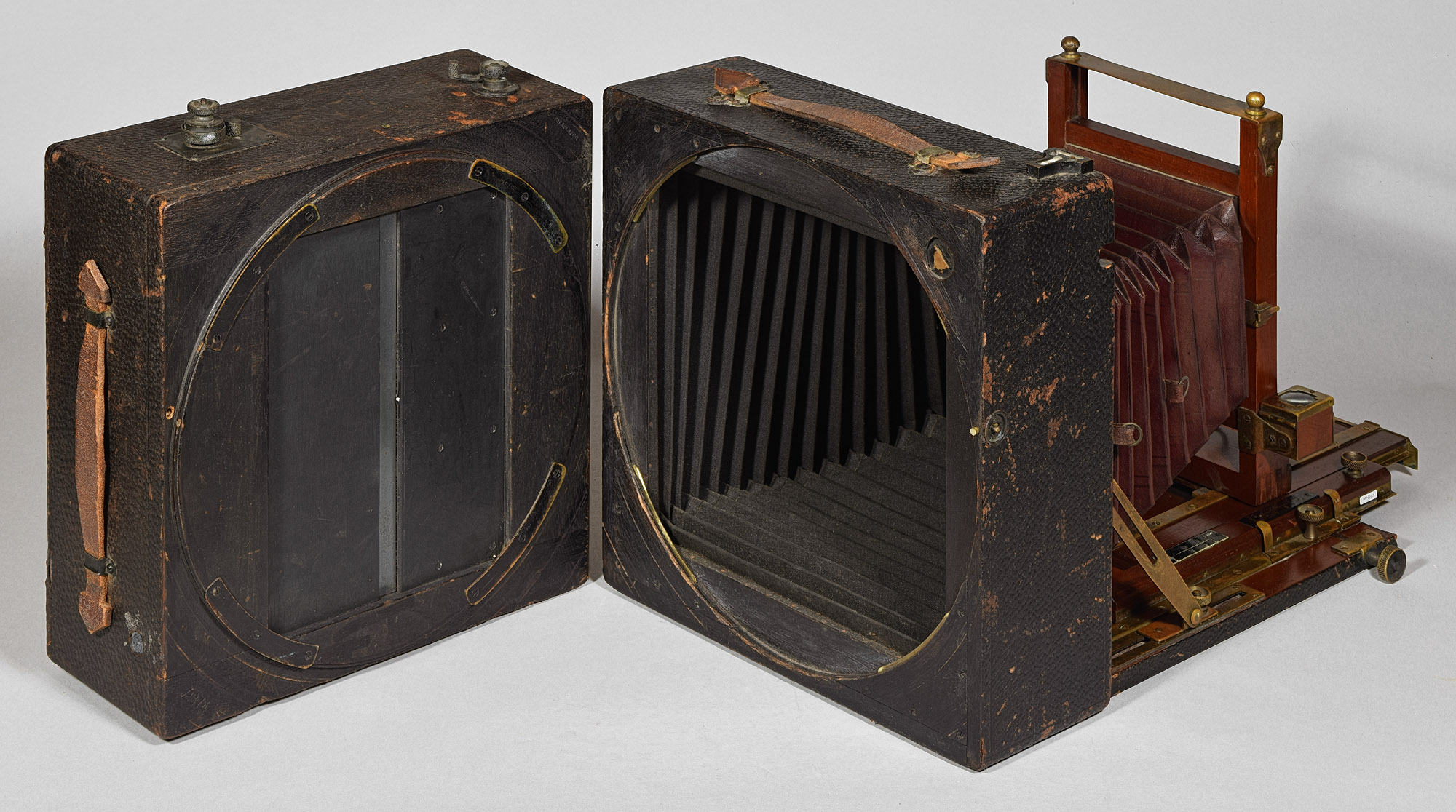
Circuit Film Holder
Attachment only, serial no. 2374 (inside upper right corner)
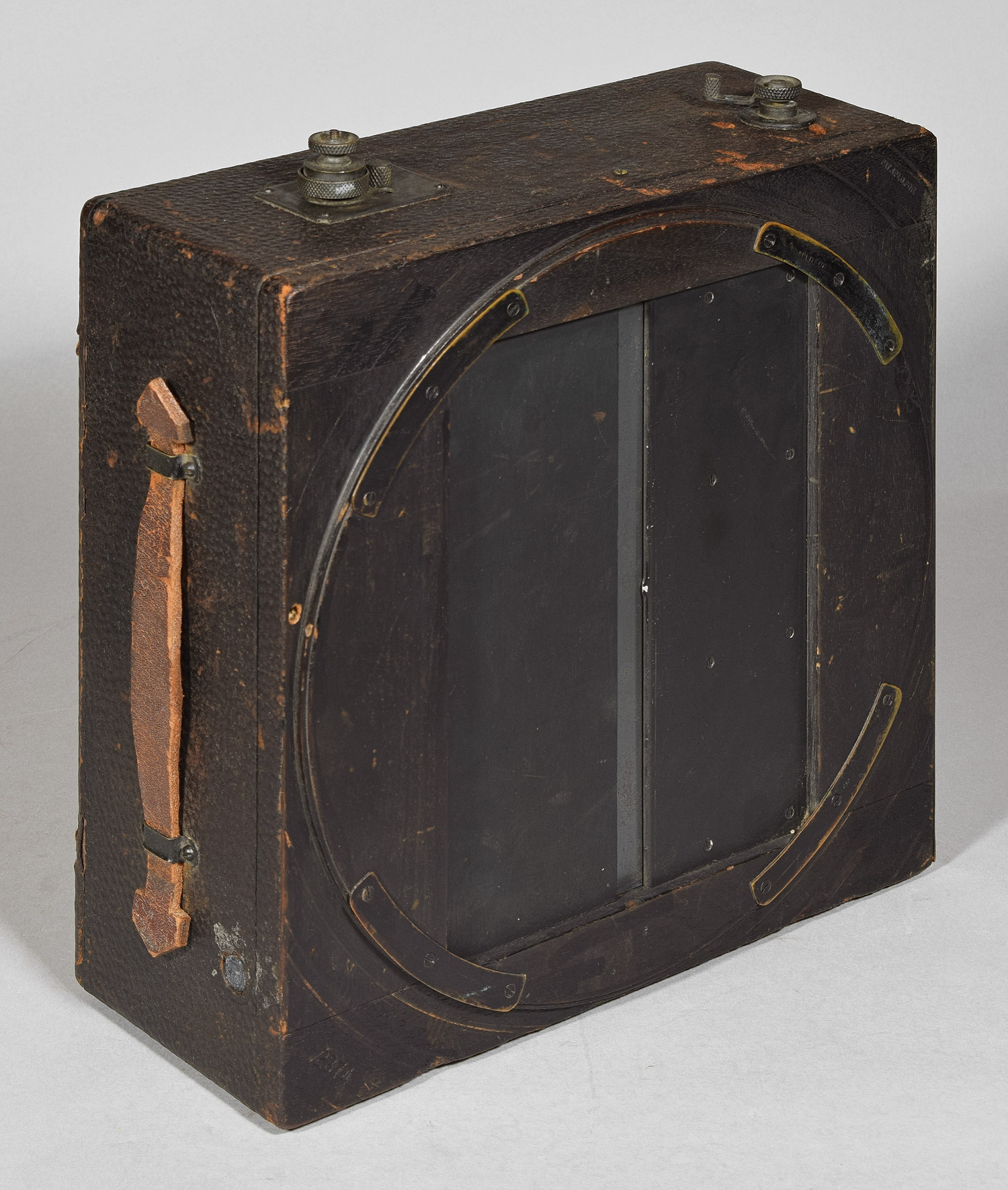
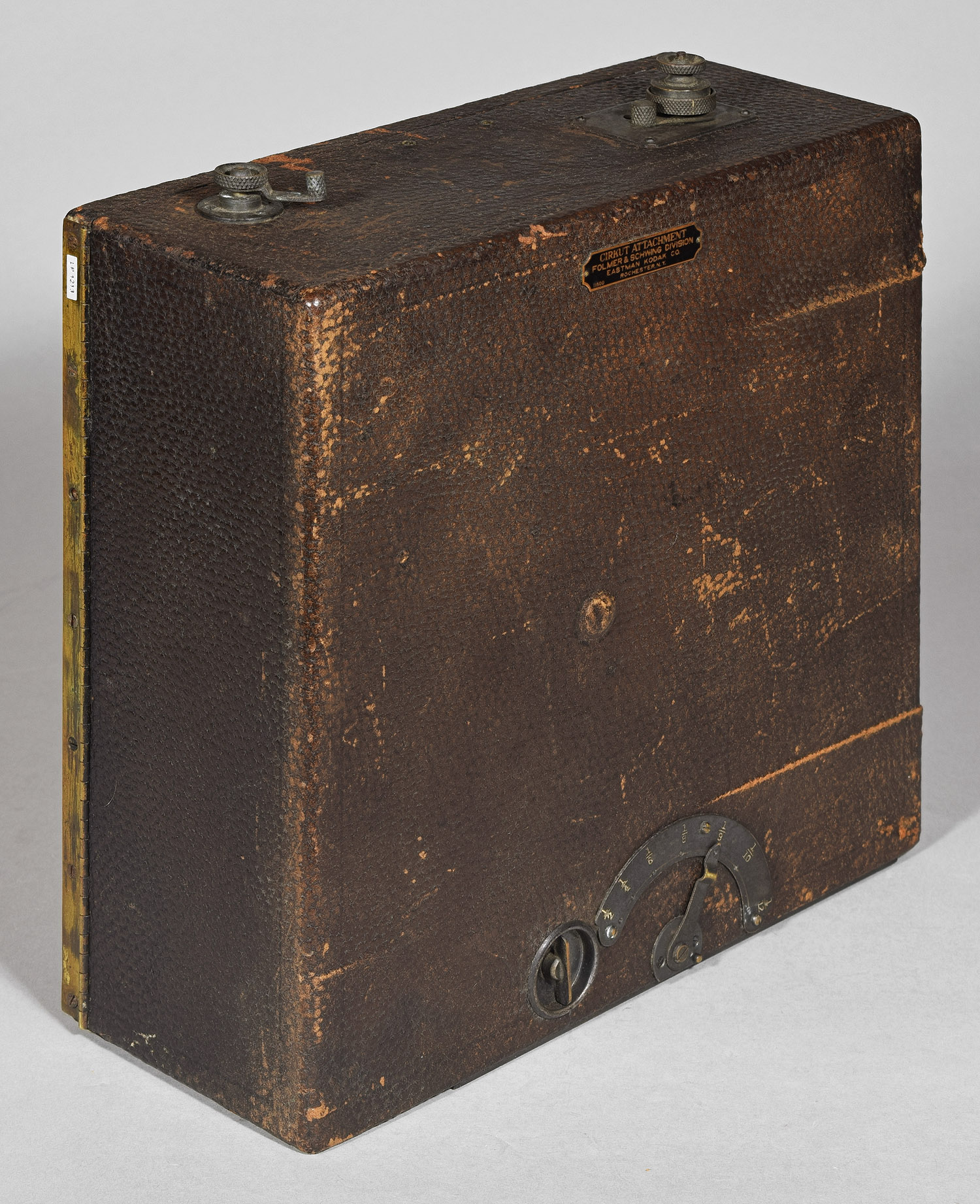
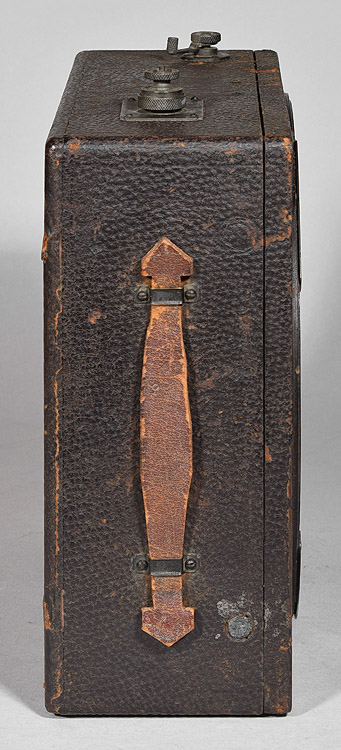
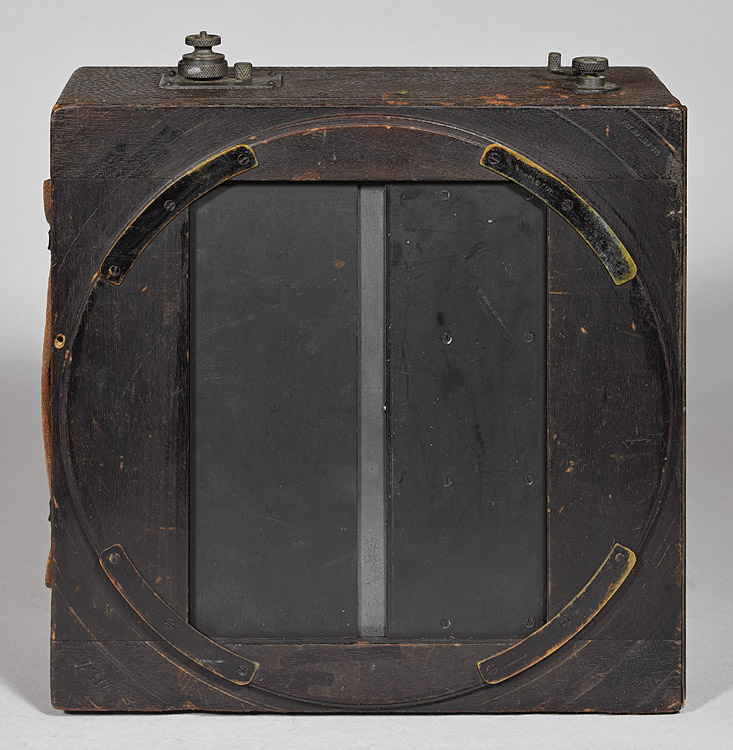
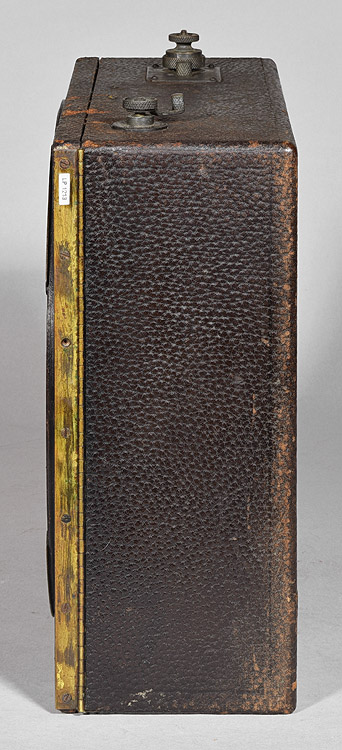
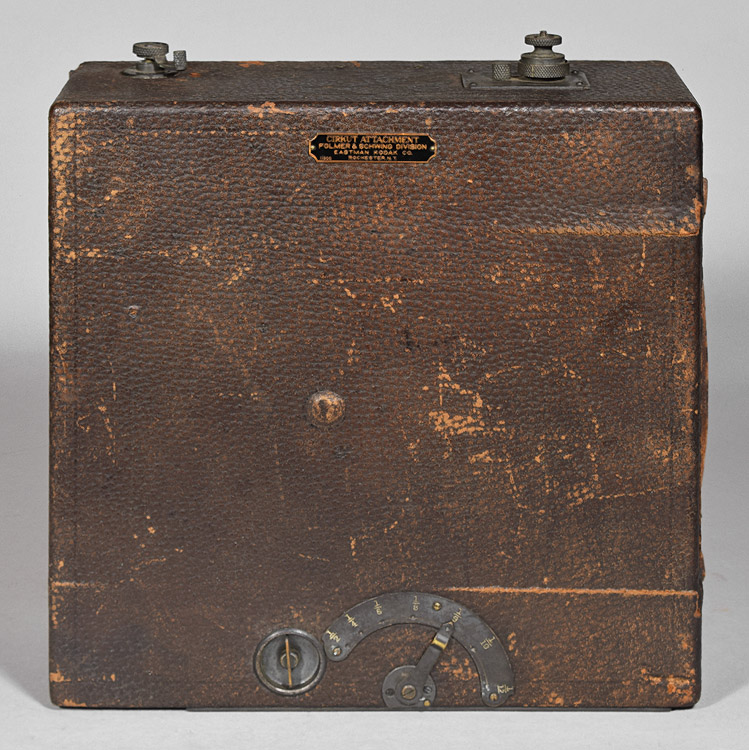
Close-ups of Label and
Adjustments on the back of the Circuit Attachment
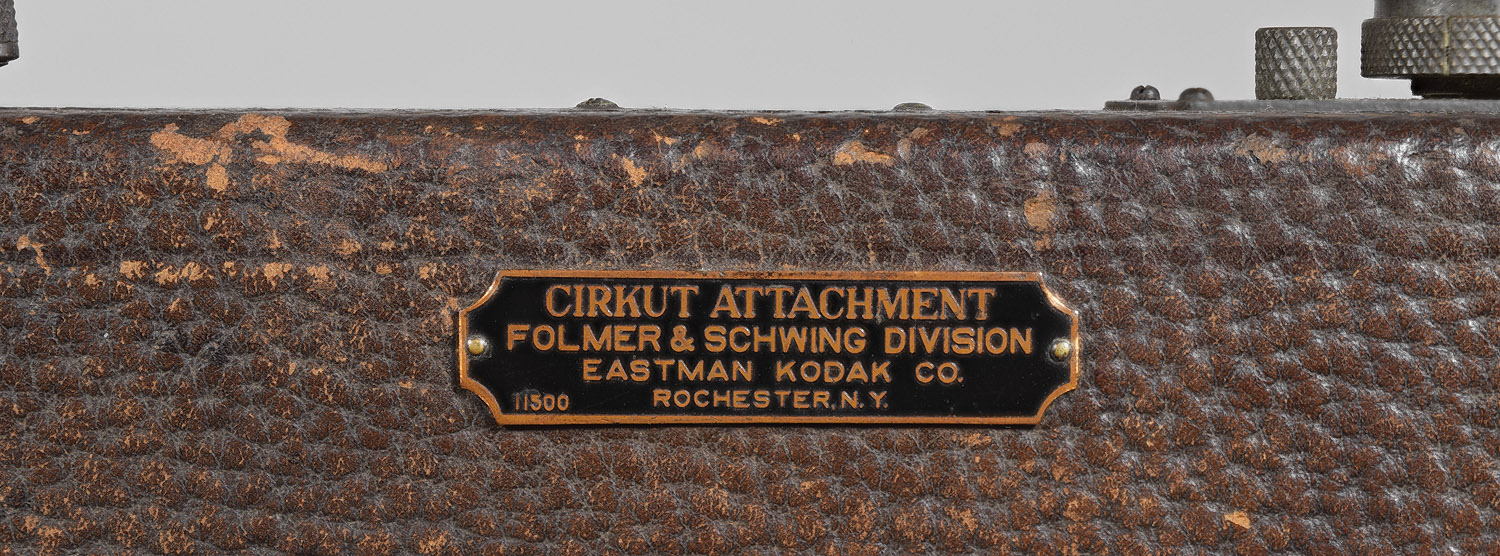
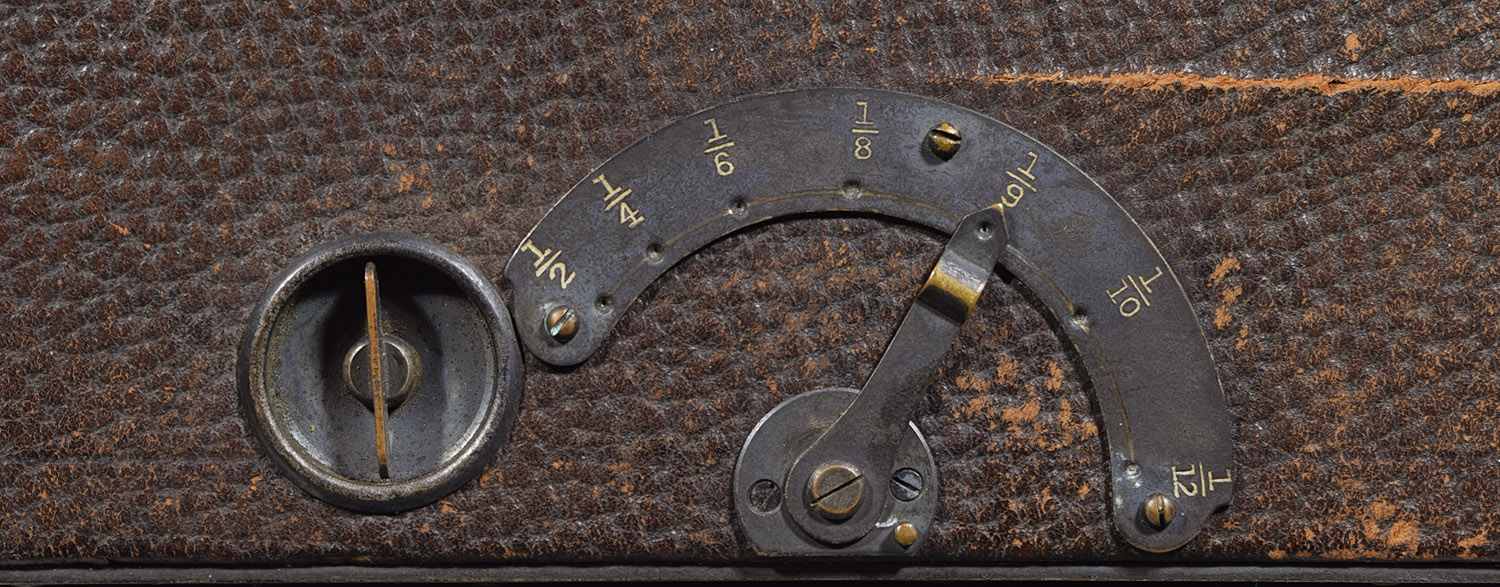
Bottom (left); Top (right)
Circuit gear
box with gears and winding key,
serial no. 46 stamped on inside edges of top and bottom An example of a photograph taken
by a Circuit Outfit: The Waterloo (IA) Canning Co c.1925, size: 8x34"
(my great uncle, Lyle Vaubel, is in this photograph; he is under the
tree, just to the right of the man in a dark sweater). A circuit
image can be distinguished from a non-moving film panorama in that the
image has the same scale from edge to edge, and that vertical surfaces
or lines are imaged exactly vertical. The circuit
outfit us designed to take panoramic photos without the distortion
introduced from wide angle lenses. The outfit consists of a
leather-covered view camera (which could be used for normal photos), a
circuit back that replaces the normal, ground glass back of the camera,
a tripod having a gear track around its top, and a series of gears.
A combination of gear (installed on the bottom of the circuit back and
engages the track around the tripod head) and settings on the circuit
back results in the camera panning around the tripod at a rate that
matches the movement of the film past a vertical slit. The
negative is exposed through the slit as the camera pans, producing a
photo in which vertical features, such as the edges of buildings and
telephone poles, are exactly vertical, as long as the camera/tripod
combination is level. References:
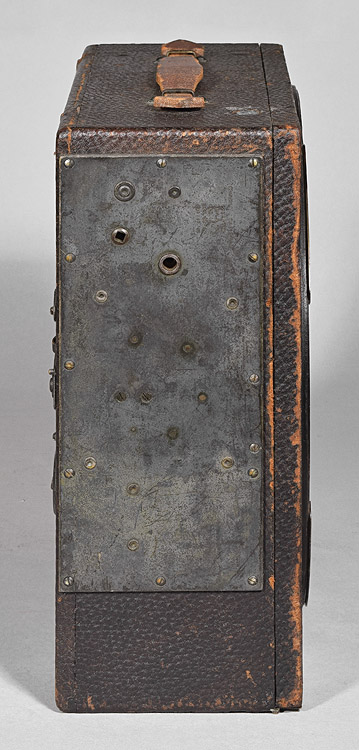
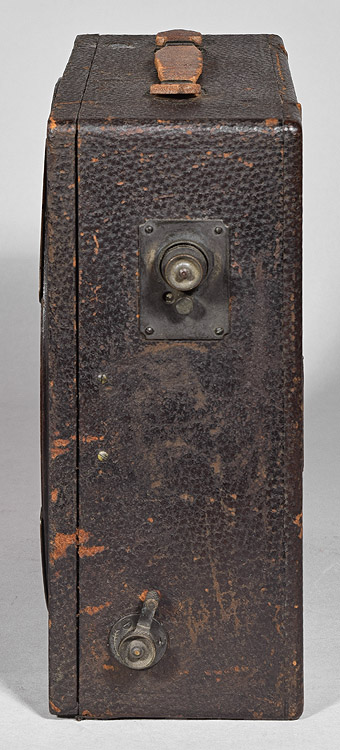
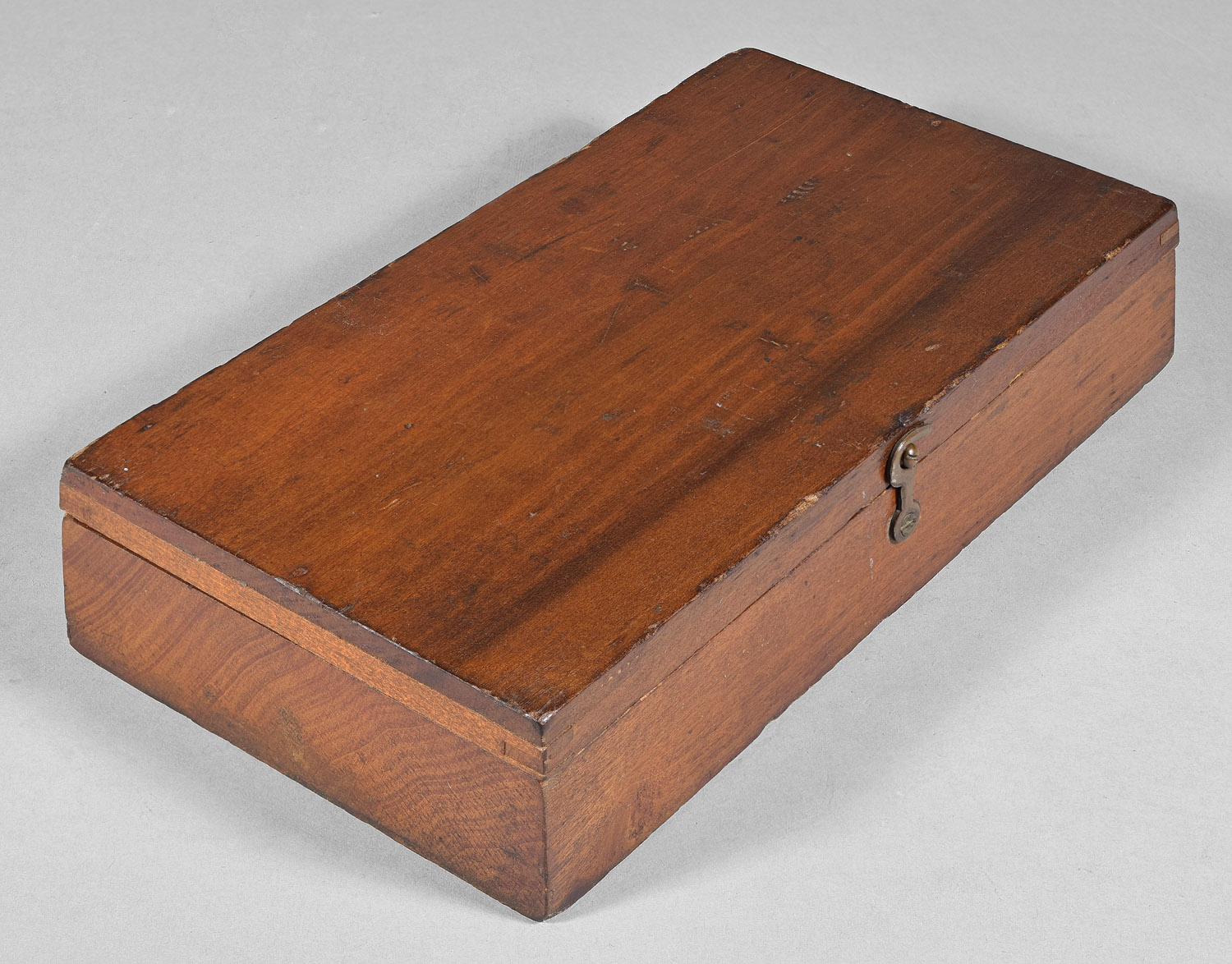
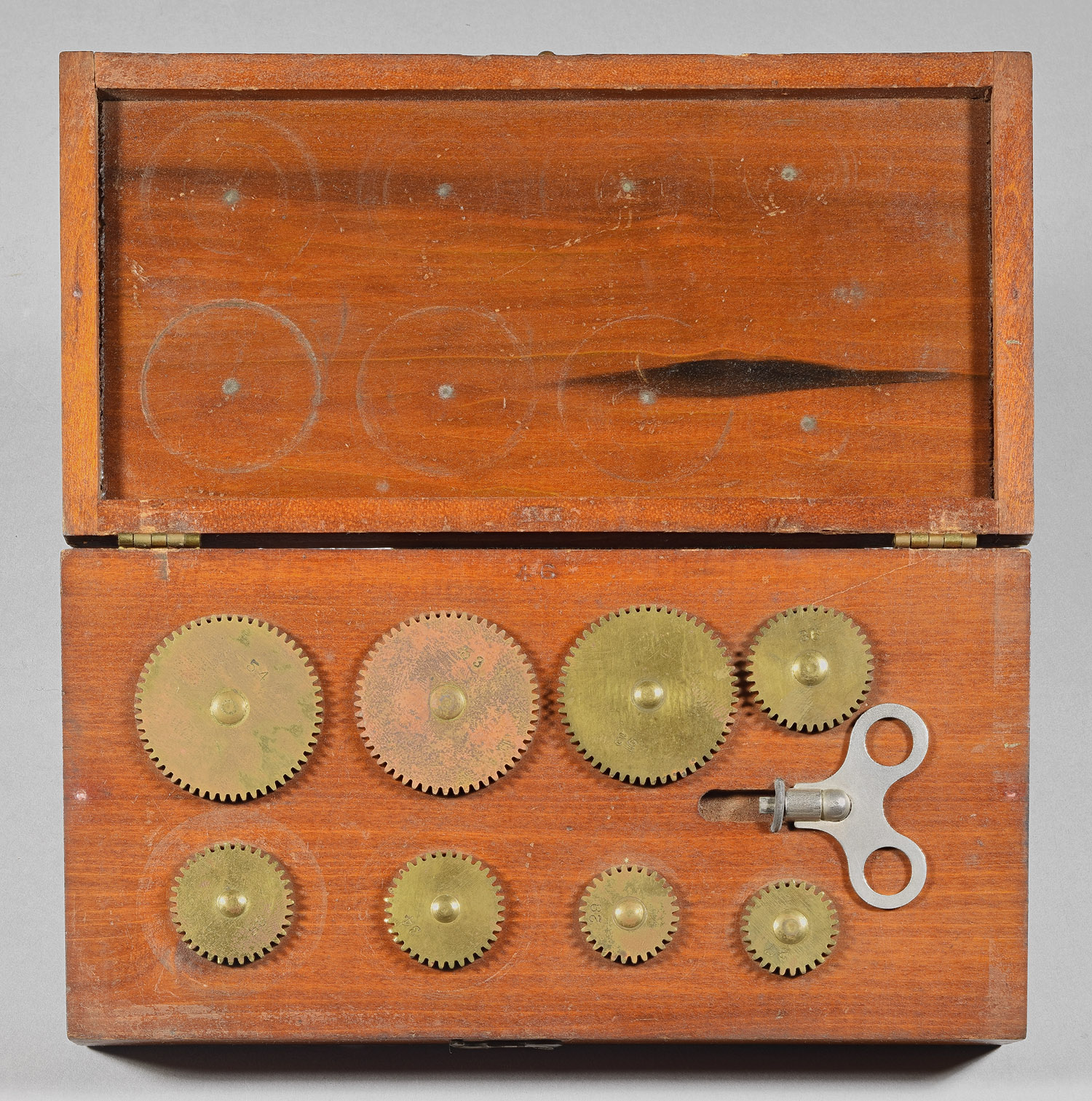
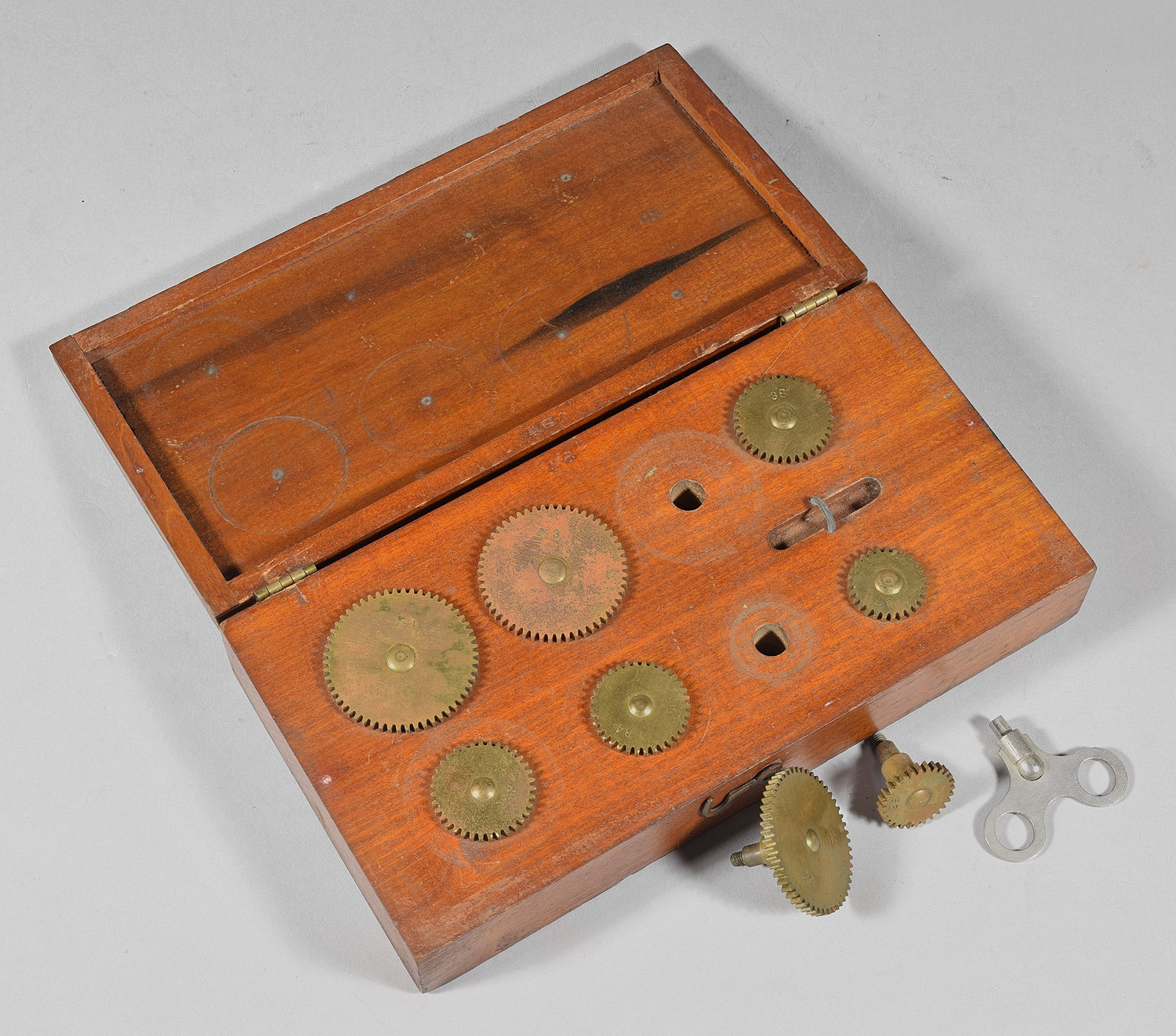
![1213-Milne 313 Waterloo Canning Co Panorama c. 1925 sepia 8x34in [LSP- Lyle Vaubel under tree, r of man w dark sweater]-1500.jpg](../imagesnonview/1213-Milne%20313%20Waterloo%20Canning%20Co%20Panorama%20c.%201925%20sepia%208x34in%20[LSP-%20Lyle%20Vaubel%20under%20tree,%20r%20of%20man%20w%20dark%20sweater]-1500.jpg)
Notes:
Photographic Encyclopedia, Andrew J. Lloyd & Co., (Boston, MA),
1901, p. 48
Milwaukee Photo Materials Co. Catalogue No. 5, Milwaukee Photo
Materials Co. (Milwaukee, WI), undated c.1907, p.54
Graflex and Graphic Cameras 1912, Folmer & Schwing Division., Eastman
Kodak Co. (Rochester, NY), dated 1912, pp. 44-45
Photographic Materials Mail Order Cash Catalog No. 127, George
Murphy, Inc. (New York, NY), Jan. 1927, p. 31
Photographic Materials Mail Order Cash
Catalog No. 130,
George Murphy, Inc. (New York, NY), Jul.
1930, p. 31
